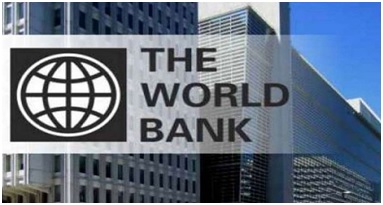World Bank Approves $500mln For Ethiopia’s Universal Electricity Access 2025 (March 31, 2021)
Association (IDA) credit to support Ethiopia’s goal of achieving universal electricity access by 2025.
Over the past decade, the Government of Ethiopia has made encouraging progress on its electrification program and expanded the grid network coverage to nearly 60 percent of towns and villages.
Despite this progress, Ethiopia has the third largest energy access deficit in Sub-Saharan Africa with more than half the population still without access to reliable electricity especially in deep-rural areas which are dependent on biomass and kerosene.
The electricity deficit in Ethiopia continues to exacerbate the poverty situation, preventing far too many people from fulfilling their basic socio-economic needs and limiting access to opportunity.
The Access to Distributed Electricity and Lighting in Ethiopia (ADELE) is an important component of Ethiopia’s National Electrification Program (NEP), which aims to strategically change direction from infrastructure development to the delivery of adequate, reliable and affordable electricity services with a vision to reach universal electrification by 2025.
ADELE will focus on access to new and improved electricity services for households, smallholder farmers, commercial and industrial users, and social institutions in urban, peri-urban, rural, and deep-rural areas.
The first phase of the NEP was supported by the World Bank-financed Ethiopia Electrification Program (ELEAP) approved in 2018.
“With a goal of providing electricity services for nearly 5 million people, 11,500 enterprises and 1,400 health and education facilities, the project represents the World Bank’s continued support to the Government of Ethiopia’s NEP and is aligned with our commitment to support Ethiopia’s resilient recovery from the COVID 19 pandemic. It is also an important step towards improving service delivery and addressing drivers of fragility and conflict” said Ousmane Dione, World Bank Country Director for Ethiopia.
An important feature of ADELE will be the deployment of innovative solutions such as decentralized renewable energy technologies, particularly solar photovoltaic (PV) mini-grids and individual solar system for both household and productive use, deployed through a combined approach of public and private delivery modalities that further enhance affordability and inclusion. The project also has a strong focus on closing the gender gap in the energy sector and increasing the percentage of women participating in the mini-grid sector and off-grid technology value chain.
“ADELE can contribute to achieving near universal electrification of secondary schools and health centers. Closing the energy gap and enabling the productive use of renewable energy in rural and deep-rural areas will be crucial in the post-COVID-19 recovery phase,” said Riccardo Puliti, World Bank Africa Regional Director for Infrastructure.
The ADELE project will be implemented by Ethiopia’s Ministry of Water, Irrigation, and Electricity, the Ethiopian Electric Utility, and the Development Bank of Ethiopia.
*The International Development Association (IDA) is the World Bank’s fund for the poorest.




Leave a Reply
Want to join the discussion?Feel free to contribute!